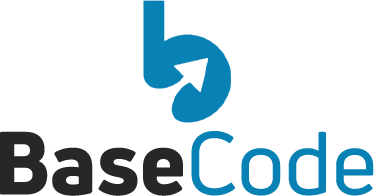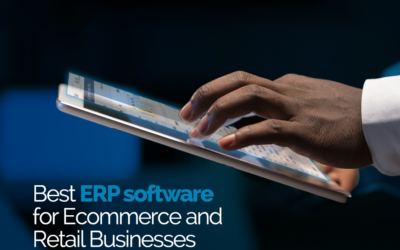Developing positive relationships with one’s customers is one of the most important activities a business can do if it hopes to endure the test of time and remain successful. The term “CRM” stands for “customer relationship management,” and it refers to a set of guiding concepts, procedures, and practices that a company uses to engage with its customers.
This entire relationship encompasses direct interactions with customers, such as sales and service-related processes, forecasting, and the organization’s analysis of customer trends and behaviors. This is because the organization is concerned with the customers’ perspective. In this article, we will be discussing how CRM software can help you manage customer relationships, which is a vital aspect of your business’s growth and success.
The role of customer relationship management in businesses
Customer relationship management software’s objective is to improve a business’s ability to manage its relationships with its customers, which should, in turn, lead to increased business success. CRM software gives you the ability to track and manage leads and sales, and it also provides a platform that helps sales and marketing better understand the impact of their efforts.
However, customer relationship management encompasses a great deal more than just technology. It is the entire philosophy for how your company should manage its relationships with its customers and how it should work to strengthen those relationships.
CRM software, when used appropriately, can be seamlessly incorporated into an all-encompassing business model. It is essential for you as a business owner to have a solid understanding of the role that customer relationship management (CRM) plays in expanding your customer base and marketing your products.
It focuses on the customers
Many companies are so preoccupied with their products and procedures that they forget about their customers. When customer relationship management (CRM) is the fundamental basis of a company or brand, the company is compelled to refocus its messaging on customers.
Building customer relationships
Relationships with customers are the focus of customer relationship management (CRM). However, the process of developing strong relationships with customers ought to be the focus of marketing efforts as well. Marketing initiatives that leverage CRM software have the net effect of incorporating the goal (i.e., relationships with new and existing customers) into the beginning of the marketing process. This is because CRM allows the marketing department to track and analyze customer interactions.
Customer engagement
Interaction on the part of customers is an essential component of branding and loyalty initiatives. Traditional marketing and advertising resources can only hope to achieve so much. This is because CRM can track and analyze customer data.
Tracking marketing performance
By utilizing CRM, you can track the level of results that each of your various marketing efforts is achieving. By analyzing customer feedback and sales metrics generated as a result of data capture in CRM software, you can easily identify the business models that are resounding successes with your customer base by analyzing sales metrics generated from a result of data capture in CRM software.
Customer relationship management (CRM) software is a tool for collecting data about your actual customers from the market. Your marketing staff can then use that data by collaborating effectively in order to coordinate promotional activities that are in line with target markets.
Builds brand loyalty
Customer relationship management (CRM) software enables you to keep the focus on increasing customer retention and loyalty to your brand. All too frequently, marketing efforts place an excessive amount of emphasis on the acquisition of new customers at the expense of the customer base that already exists. Because it is much simpler to keep an existing customer than it is to win over a new one, your marketing department should have no trouble convincing others of the benefits of CRM.
Signs that your business needs CRM software
Customer relationship management (CRM) software can help your marketing team find new customers more quickly by increasing the number of leads that come in by intelligently storing and managing the information about your customers. It enables your sales teams to close more deals in a shorter amount of time. Additionally, it improves how well we serve our customers.
Here are some indicators that it may be time to consider implementing a customer relationship management system:
Your business is struggling to make sales
All companies must enter new markets or launch new goods. Keeping up with your current business may require an integrated CRM solution. If your business is struggling to make sales, then you need CRM software. A CRM can organize, evaluate, and prioritize your sales leads so your sales team can focus on the opportunities that are likely to close and offer accurate replies to clients effectively. Your customer support team will have the information they need for upselling and cross-selling.
Your customer service needs improvement
If your customer support reps are not energetic, it’s time to invest in a CRM platform that can provide you with a unified view of your customers so reps can offer amazing service.
Customer profiles are difficult to build
When building your ideal customer profile, you can only estimate without all your customer data. You won’t know what your sales team is doing. You’ll need to have additional regular check-ins to obtain this information, diverting salespeople away from customers and escalating the issue.
Your marketing and sales departments aren’t collaborating
A good CRM can hold various forms of information, so it can unite teams. Lack of coordination in departments causes many customer complaints. Aligning sales, customer support, marketing, and back-office roles (billing, inventory, and logistics) is difficult. All employees can access, use, and add data if a CRM’s components share a data model. They can discuss leads, challenges, and order histories. When teams exchange information, productivity and efficiency soar, data barriers evaporate, and your firm seems unified to the customer. Your company is
No proper contact storage
CRM solutions enable businesses to track contacts to customize sales and marketing communications. Good CRM solutions can update account and contact data with third-party data sources. Your sales, service, and marketing teams know whether a contact has a new position, allowing them to retain and renew ties.
If you don’t know who your top customers are, it’s hard to show them appreciation. The correct CRM platform can detect those so customer-facing employees can acknowledge, incentivize, and nurture them to improve customer loyalty.
Why use a customer relationship management (CRM) solution?
When your data is organized and managed by a CRM platform, you have a more comprehensive understanding of your customers, which in turn leads to more aligned messaging. This is one of the many benefits of using CRM software.
You can better target your marketing efforts, shorten sales cycles, and provide better, more efficient customer service if you digitize and automate many activities (both those that take place behind the scenes and those that involve direct interactions with customers).
Your customers’ overall experience will be improved, and you’ll have a better grasp of your client’s needs. Finally, fully integrated CRM software simplifies collaboration between departments and enables you to present a unified front to customers. This is accomplished by making it easier to share information across departments.
If you run a serious company that wants to remain relevant in the long run, investing in quality customer relationship management software is never a waste of resources because the return on your investment is well worth it.




0 Comments